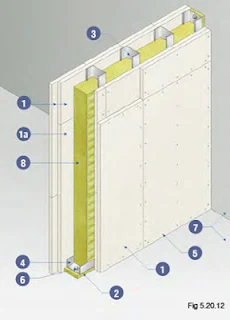One development in physical security is the use of spray on polymer coatings to mitigate the effect of explosion blast on building walls. This can be a retrofit option is required. It helps to reduce penetration and spalling on the inside of the wall.
Here's a couple of suppliers Rhino Linings, Dynasystems (Dynashield) and Line-X (Paxcon) and a video example. The polymer was originally developed as a coating to protect the the floor beds of pickup trucks from damage. It doesn't greatly strengthen the concrete/blocks/steel per se, but it does reduce the debris on the side of the wall opposite to the explosion. The reduces the risk to people within the building.
If you need some comparative research, there's a paper here.
If you need some comparative research, there's a paper here.
If you are in the position to influence the construction of the building ,the blast resistance can be enhanced by adding polymer fibres and steel fibre (approx 7%) into the concrete during the mixing process. There is a great range of suppliers for these fibres. Such technology can also help protect concrete from the spalling effects of fire.



